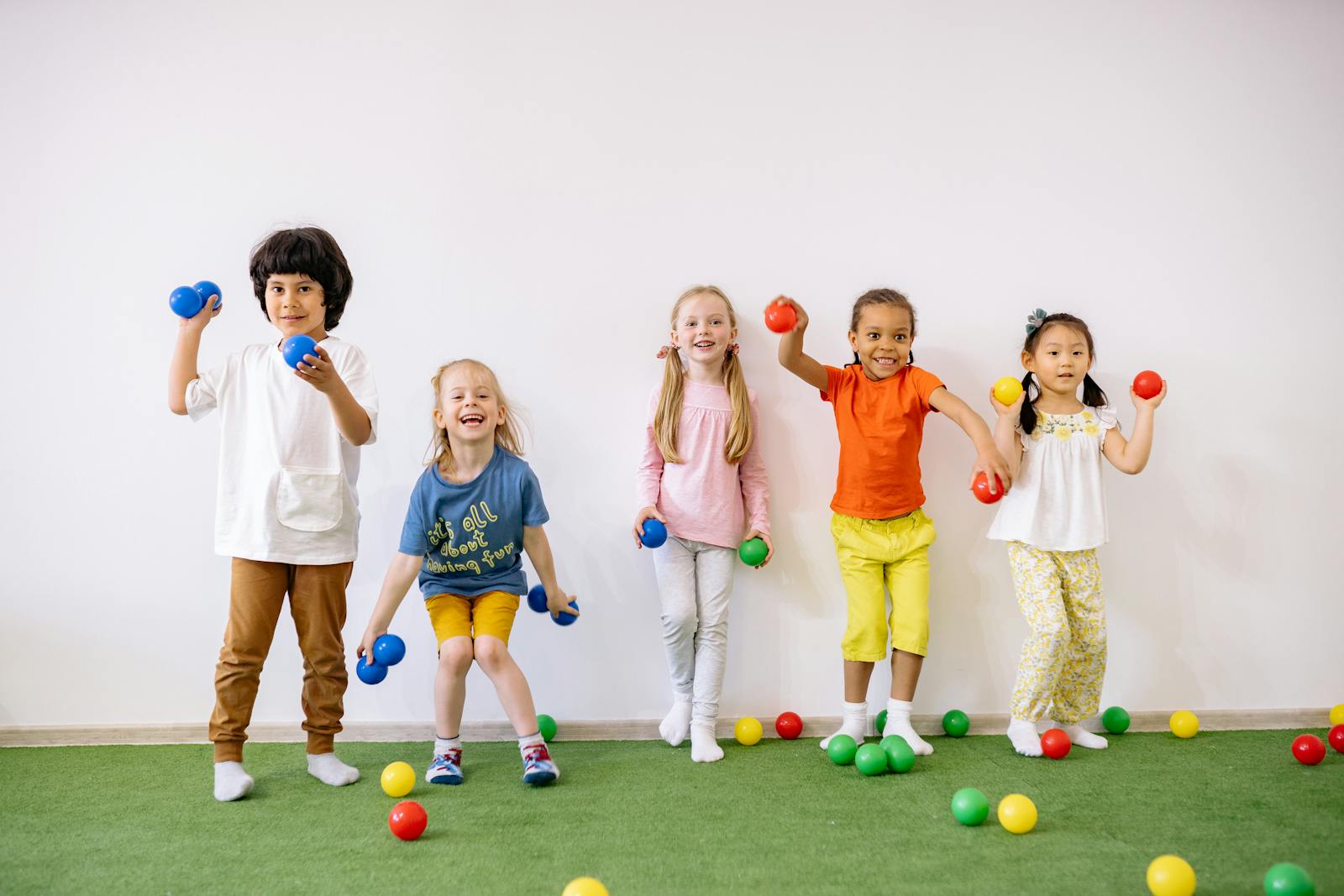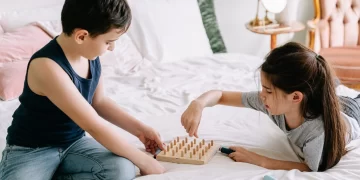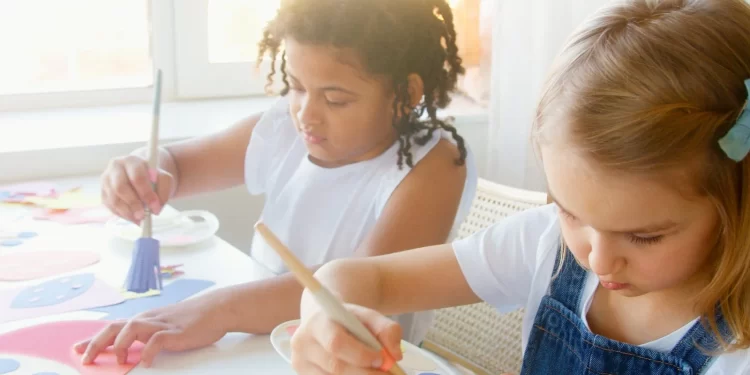
Educational games are a fantastic way to engage your children in learning while having fun. Whether you’re a parent, teacher, or caregiver, organizing educational games can make the learning process enjoyable and effective. In this guide, we will explore how to plan and organize educational games that will captivate your children’s imagination and help them acquire new knowledge and skills.
What are educational games?
Educational games are those designed to teach people about a specific subject or a specific skill. They are made predominantly for kids and students of all ages and can be used both inside the classroom and out. Educational games are a subset of serious gaming.
One important difference is between educational games and game-based learning.
Game-based learning is the act of learning information or skills through a game. It can occur in almost any game, whether serious or not. An example of this might be chess teaching logic and strategy skills.
Educational games have been developed with specific learning outcomes in mind. Game-based learning occurs in educational games, making educational games an umbrella term for both the act of learning and the method of education.
How to Organize Educational Games for Your Children
1. Set Clear Learning Objectives: Begin by defining what you want your children to learn through the game. This might include specific educational goals, such as improving math skills, expanding vocabulary, or enhancing problem-solving abilities. Having clear objectives will guide your game selection and design.
2. Choose Appropriate Educational Games: Select games that align with your learning objectives. There are a wide variety of educational games available, from board games and card games to online apps and interactive tools. Ensure that the games are age-appropriate and cater to your children’s interests.
3. Create a Fun Learning Environment: Make the learning experience enjoyable by setting up an engaging environment. Create a dedicated play space with comfortable seating, good lighting, and a variety of educational materials. Ensure the environment is free from distractions.
4. Explain the Rules Clearly: Before starting the game, explain the rules to your children. Ensure they understand the objectives, the game mechanics, and any specific rules or strategies. Encourage questions and discussions to clarify any doubts.
5. Encourage Critical Thinking: Educational games are an excellent opportunity to promote critical thinking and problem-solving skills. Encourage your children to think creatively, make decisions, and strategize. Offer guidance and support when needed.
6. Provide Positive Reinforcement: Acknowledge your children’s efforts and achievements during the game. Positive reinforcement, such as praise and rewards, can motivate them to stay engaged and continue learning.
7. Promote Collaboration: If possible, choose games that encourage collaboration and teamwork. Cooperative games teach valuable social skills and help children work together to achieve common goals.
8. Monitor Progress: Keep track of your children’s progress and areas where they may need additional support. This allows you to tailor future game choices and learning experiences to their individual needs.
9. Mix Learning with Play: Don’t forget that the primary goal is to make learning enjoyable. Incorporate breaks, fun activities, and humor to keep the atmosphere light and entertaining.
10. Reflect and Adapt: After each game session, take some time to reflect on what worked well and what could be improved. Adapt your approach and game selection based on your children’s responses and progress.
Benefits of Educational Games
Educational games have many more benefits, and the increased presence of technology in the classroom has expanded the possibilities for the types of educational games available and the subjects that can make use of them. Learners of all ages can benefit from educational games in a variety of formats and modalities.
Fun is the obvious reason to use educational games in the classroom. But aside from this, there are many more benefits to serious games in education for children. Here are six important reasons for using game-based learning in education.
Teach soft skills
While STEM and language skills are curriculum essentials, schools should also be focused on giving kids soft skills. Creative problem-solving, critical thinking, leadership, and collaboration are the kinds of development skills many employers are looking for. Educational games are excellent at building these skills, alongside essential curriculum.
Provide real-time feedback
Educational games reinforce knowledge throughout the learning journey, as opposed to at the end of a course like traditional testing. With the ability to try again, making mistakes becomes part of the journey rather than a stressful failure. This helps increase kids’ self-esteem through positive reinforcement of their achievements and the ability to try again.
Adaptive learning
Adaptive learning provides a personalized learning experience. Using AI and similar methods, video games can respond to a user’s actions. A simple example would be difficulty levels. If a player is breezing through the tasks or struggling to complete a level, adaptive learning may raise or lower the difficulty to meet the player’s needs. This helps students develop skills at the pace that suits them best.
Increased student engagement
Educational games can provide a hands-on approach to learning for your children. They are designed to be engaging and to motivate students to keep going. Plus, when students enjoy their learning experience they are more likely to continue it outside the classroom.
Better retention
When students are active participants in their learning, they have better retention. This is based on the concept of experiential learning (or learning through experience). Students aren’t just memorizing or thinking about new concepts – they are trying them out. This helps establish new habits and behaviors.
Make big topics easier for kids
Our world is full of complex, confronting issues. Take climate change as an example. It’s a very real problem that many kids find overwhelming. Through educational games, like Chaos Theory’s Working with Water, game developers can make large issues more accessible.
5 games to help students with research and study skills
1. Studying contest
This game can help students study lesson content and quickly analyze information, making it beneficial for reviewing test material. You draw two circles on a board or projector screen and label one “Yes” and the other “No.”
Separate students into two teams and call one representative from each to listen to a statement and decide if it’s true or false. The first student who taps the circle with the correct answer wins the round for their team.
2. Find the clues
During this timed game, students can practice their concentration and communication skills while studying lesson material. You provide several terms or names on small pieces of paper and assign a certain amount of points to each one.
Working in teams, one student picks a word and gives their teammates clues without saying it. Their goal is to identify as many words as they can. The team that has the most after 60 seconds wins the round.
3. Find the object or image
In this physical activity, students can learn research skills while learning the components of a classroom. You provide a list of objects or images in the classroom and set a timer for three minutes while students search for them.
You can also hide mathematical equations around the room and instruct students to solve them within the timeframe. It may be helpful to provide additional guidelines for finding objects to encourage teamwork and constructive exploration.
4. Category contest
During this game, students use their base of knowledge to learn how to connect separate concepts. You provide topics and related categories, then direct student teams to think of words associated with them that begin with a randomly selected letter.
For instance, one topic could be “outer space” and a related category could be “planets.” If the assigned letter is “M,” the planet might be Mars. It might be helpful to design a point system based on different parameters like the complexity of the word.
5. Bingo
You can use this game to review lesson content and help students study for the best exams, particularly when teaching vocabulary words or multiplication tables. You prepare a grid for each student with different questions or mathematical expressions.
Then, they read items from a corresponding list and students listen for their options, marking the grid with the correct answer. The student who marks their entire grid with the most correct answers wins the round.
5 games to improve communication skills and teamwork
1. Charades
In the game of charades, every student can study vocabulary words and learn public speaking skills by doing physical exercises. One student performs actions or movements associated with a word while their classmates guess it out loud. The person who guesses the correct option receives the next word to perform.
For instance, if the word is “debate,” then a student might simulate an exchange with another person. You can add a teamwork element by dividing the class into groups and directing them to only guess the words for other members of their team.
2. Jeopardy
In this contest, students can learn teamwork and review lesson content by earning points. You write questions or mathematical equations on index cards and list points on the other side of the card based on content difficulty.
Separate the cards into categories and place them on a screen or board for teams to select and attempt to answer. For instance, one category might be quadratic equations and its 500-point card has multiple steps while a 100-point card has very few.
3. Connect through stories
You can use this game to encourage students to bond with each other and reflect on their conduct, particularly if they’re in high school. You can pick up a ball of yarn and share a personal anecdote of a situation where you solved an issue and learned something new.
Then, you hold the end of the yarn string and give the ball to a student, who shares a situation of their own. When they’re finished, they hold on to the yarn string and pass the ball again, creating a physical representation of connecting with other people.
4. Collaborative drawing
In this activity, students can learn teamwork skills and express their creativity. You provide each student with a sheet of paper and a writing implement, then direct them to draw a picture within a set timeframe. Afterward, the student passes their drawing to another classmate and continues the drawing of someone else. This continues until the student receives their original artwork, which they describe to the rest of the class.
5. Word definition
In this game, every student can depend on their understanding of relevant vocabulary words, particularly high-level options. You choose a word and direct students to write what they think the meaning is on a piece of paper. You read the definitions out loud and have students vote on which option is most likely correct. It may be helpful to give students tips during this game like how to identify familiar words within the vocabulary that’s more complex.
FAQ:
What are educational games for kids?
Educational games are those intentionally designed for the purpose of education or those entertainment games that have incidental or educational values. This is designed to help people understand concepts, learn domain knowledge, and develop problem-solving skills as they play games.
What is an example of game education?
Examples of game-based learning include card games, board games, and video games. As another example, a teacher may create a game that is like Wheel of Fortune to help students with spelling and vocabulary.
What is an educational mobile game?
Educational mobile games refer to mobile digital games that have educational components and are intended for teaching and learning purposes.
What is the power of educational games?
Kids can learn problem-solving skills, improve memory capacity, and many more from playing these kinds of games. According to an Oxford University study, people who enjoy playing games report feeling good about themselves and connecting with others on a social level.
Why online games are fun?
Online gaming can give you the space to be yourself and explore different personalities in a safe environment without anyone knowing you in the physical world. This gives players comfort in being able to freely explore thoughts and feelings they might not feel comfortable doing anywhere else.
Do games affect memory?
You may think playing video games is just a frivolous pastime, but it could strengthen your brain if it’s a new activity for you. Both younger and older participants in a research study improved their scores on a memory test after they started playing a video game every day.
Conclusion
Organizing educational games for your children can be a rewarding experience that fosters a love for learning and curiosity. By setting clear objectives, choosing the right games, and creating a positive and engaging environment, you can effectively educate and entertain your children simultaneously. Remember that the journey of learning through games is a dynamic process, and your flexibility and creativity as an organizer are key to its success.


































